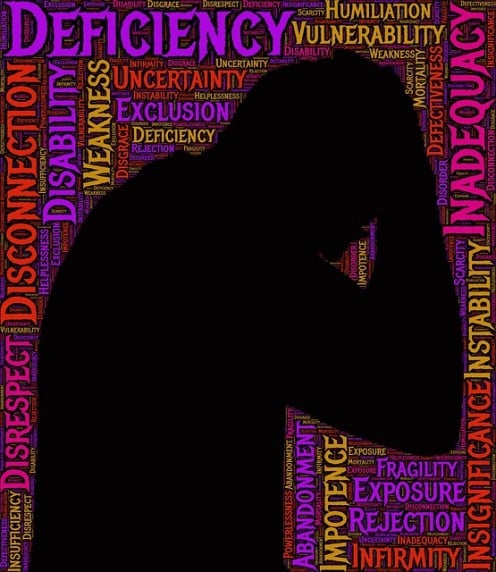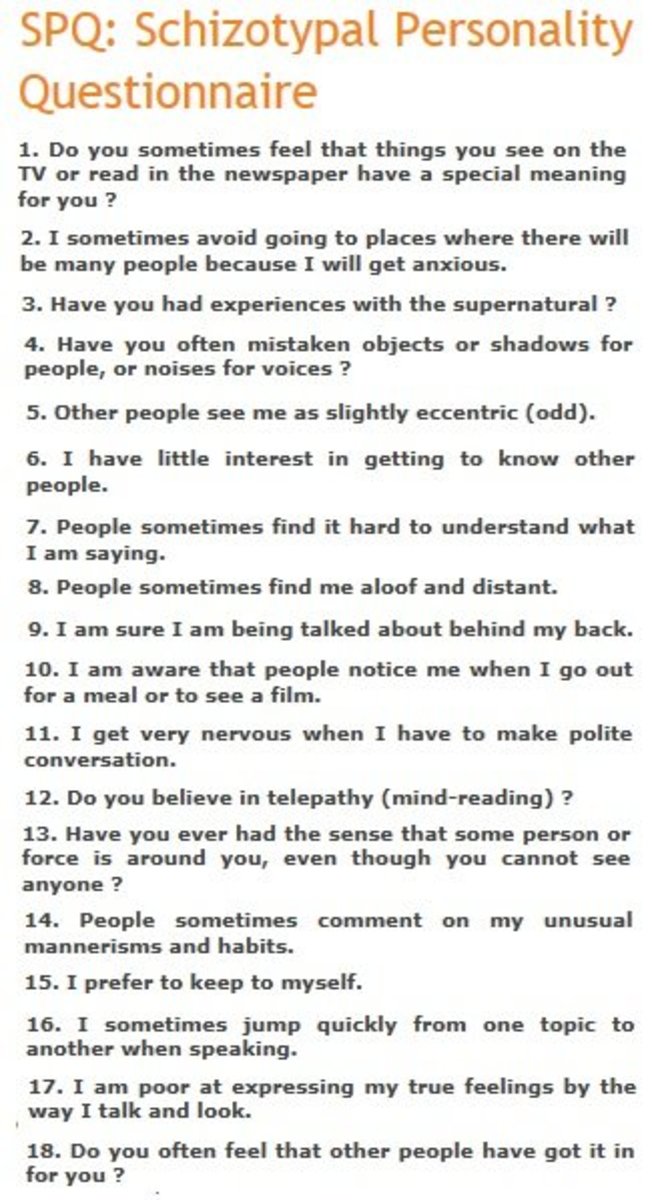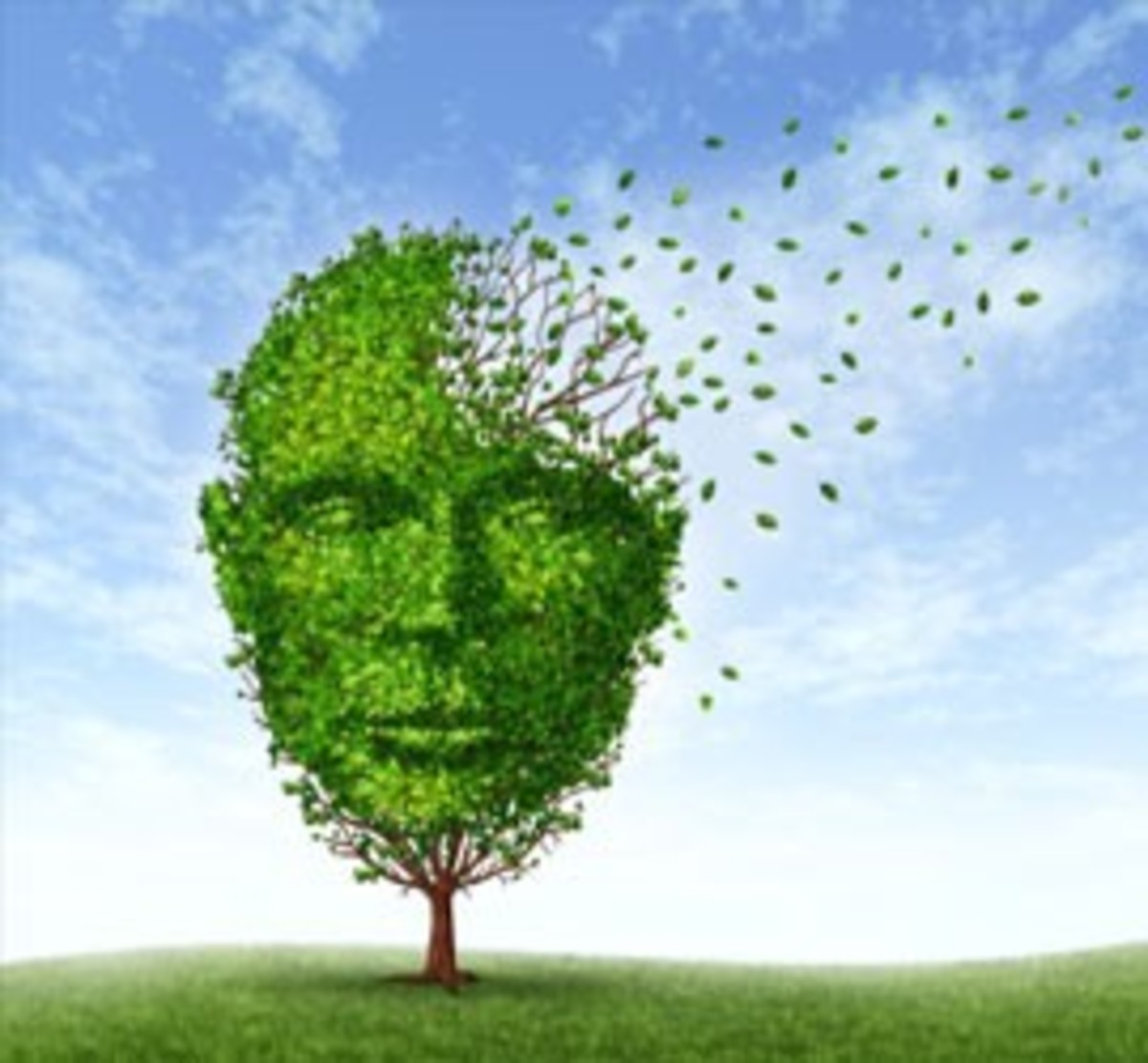10 Peculiar Mental Illnesses You Never Knew Existed

Weird Mental Disorders
Aside from the more well known mental health illnesses, such as bi-polar disorder, depression, ADD/ADHD, autistic disorders and personality disorders, some mental health illnesses seem to be just plain all-out bizarre.
Here are ten of the most peculiar mental health disorders that exist.
1. Fregoli Syndrome
Fregoli Syndrome was first reported in 1927 after a case study of a 27-year old woman who thought she was being persecuted by a couple of actors that she regularly went to watch at a theatre. According to the 27-year old woman, the two actors “pursued her closely, taking the form of people she knows or meets.”
Fregoli Syndrome was named after the Italian actor, Leopold Fregoli, because he was well known for quickly changing appearance during stage acts. People who suffer with Fregoli Syndrome believe that some people in their lives are actually someone else they know who is in disguise. They often believe that this person is capable of shape-shifting and that several people in their lives may actually be the same person.
According to psychiatrists, Fregoli Syndrome is a result of having trouble with facial perception and could be the result of traumatic brain injury.
2. Capgras Delusion
Capgras Delusion (or syndrome) is extremely similar to Fregoli Syndrome (or delusion).
People inflicted with Capgras Delusion suffer with the belief that someone they know, sometimes a family member, has been replaced with an identical person but is actually an imposter in disguise. In some cases, they may believe that several people are imposters identical to the people they know.
Capgras Delusion was first discovered by French psychiatrist, Jean Marie Joseph Capgras, hence it's name and can be caused by failure of normal recognition processes due to brain injury from strokes or drug overdoses (amongst other causes). It can also be the result of cerebral lesions in the posterior of the right hemisphere of the brain (responsible for facial recognition processing) and schizophrenic diseased conditions.
Whilst Capgras Delusion is more common in women, in can also affect men.
3. Schizotypal Personality Disorder
The term schizotypal comes from the words schizophrenic and genotype and was originally coined in 1956 by Sandor Rador. However, Schizotypal Personality Disorder is not an officially recognized personality disorder.
According to the American Psychiatric Association (AMA), Schizotypal Personality Disorder is defined as:
“a pervasive pattern of social and interpersonal deficits marked by acute discomfort with, and reduced capacity for, close relationships as well as by cognitive or perceptual distortions and eccentricities of behavior, beginning by early adulthood and present in a variety of contexts”
Schizotypal personalities often have unusual, eccentric or unconventional beliefs including beliefs in the paranormal/supernatural and sometimes they may behave and act quite strange. They may also have peculiar dressing habits and sometimes wear odd clothing. It's also not unusual for a schizotypal personality to suddenly stop responding mid-conversation, as though they have become momentarily 'switched off', before becoming aware again.
Schizotypal Personality Disorder can, over time, develop into schizophrenia.
4. Pseudo-Coma (Locked-In Syndrome)
Locked In Syndrome is also known as a pseudocoma and can be caused by lesions which damages the brainstem, usually as a result of traumatic injury.
When suffering with Locked In Syndrome, or being in a pseudocoma, a person may suffer paralysis of all muscles but they remain consciously aware. Because the facial muscles are also paralyzed, they are unable to speak.
Whilst some people have been known to fully recover from Locked In Syndrome/Pseudocoma, the majority of people who suffer with it never fully regain their motor control.
5. Reduplicative Paramnesia
Reduplicative Paramnesia is one of the delusional misidentification syndromes and is extremely rare. Reduplicative Paramnesia is believed to be the result of acquired brain injury, most notably damage to the right cerebral hemisphere and to the frontal lobes.
The term describes the delusional belief that a place or location has been moved or relocated to another destination or has been duplicated (and that it therefore exists in two different places at one time). The term, reduplicative paramnesia, was first coined in 1903 by neurologist, Arnold Pick, to describe the symptoms of a woman with Alzheimer's Disease who believed she had been relocated from his city clinic to one which looked identical but was in a different location.
Reduplicative Paramnesia was, however, previously reported in 1788 by Charles Bonnet whilst describing the condition of a woman who also suffered with what would now be known as Cotard Delusion (see below).
6. Cotard Delusion
People inflicted with Cotard Delusion suffer with the delusional and irrational belief that they do not exist as a person, that they are dead, that their body is putrifying or that their body has lost blood or internal organs.
One woman who suffered with Cotard Delusion denied that her body parts existed and believed that she didn't need to eat. She believed that she could not die a natural death due to being condemned to damnation. As a result she died from starvation.
Whereas mild cases of Cotard Delusion are characterized by despair and self-loathing, more extreme cases are characterized by intense delusions of negation, along with chronic depression. Whilst statistically, 69% of people inflicted with Cotard Delusion deny their own existence, ironically 55% of them show delusions of immortality.
7. Boanthropy
Boanthropy is a mental illness in which the inflicted person suffers with the delusional belief that they are a bovine (a cow or an ox) and they act and behave as such, attempting to live as one.
Whilst Boanthropy is an officially recognized psychological disorder, some sources have claimed that the disorder could be the result of hypnosis, suggestion and/or auto-suggestion contributing towards such beliefs.
Alternatively, psychologist Carl Jung noted how such delusions may have originated in a dream but became persistent.
8. Autophagia
Autophagia is an Impulse-Control Disorder in which the inflicted person has the uncontrollable urge to inflict pain on themselves by devouring parts of their own body. Although it's not a disorder in itself, Autophagia is sometimes seen in schizophrenia, psychosis and Lesch-Nyhan Syndrome.
When experiencing Autophagia, a person will feel a heightened sense of tension or arousal just before committing the act and will then experience heightened feelings of pleasure, gratification and relief whilst they are carrying out the act.
Similar behaviour has been observed in rats which have spinal cord and peripheral cord injuries, with some of them chewing off their whole foot.

9. Foreign Accent Syndrome
Foreign Accent Syndrome was first reported in 1907 by French neurologist Marie Pierre and is usually caused by stroke, although it can also be caused by developmental problems, migraines or trauma to the head.
There are many myths and misconceptions about Foreign Accent Syndrome and a person, when suffering with it, doesn't always suddenly begin speaking a well known foreign accent that they have heard before.
The scientific consensus is that mechanic alterations in the speech of someone inflicted with Foreign Accent Syndrome are most likely due to issues with the cerebellum which controls motor function. For this reason, when other people believe that the person now sounds like they are speaking in a foreign language, this is most likely due to auditory paraedolia (or apophenia) and is therefore more of an auditory illusion.
Between 1941 and 2009, a total of sixty-two cases of Foreign Accent Syndrome were recorded. There have also been cases reported whereby family members of the inflicted person have picked up and adopted the new accent from them.
10. Mirrored Self-Misidentification
It's name is pretty self-explanatory and as it suggests, people who are inflicted with this disorder suffer with the delusional belief that their reflection in the mirror is not actually them but is another person. However, the patient is able to recognize everyone else's reflections in the mirror with no problem.
The behaviour is constant and consistent and those inflicted with Mirrored Self-Misidentification syndrome are not aware of their psychological condition and are therefore resistant to treatment or correction. Mirrored Self-Misidentification is caused by right hemisphere cranial dysfunction as a result of brain damage or brain disease.
Such delusional misidentification syndromes are usually seen in patients with dementia, most notably Alzheimer's disease, although those with Schizophrenia and Parkinsons disease can also be affected.
Also See:
- 10 Unusual Phobias You Didn't Know Existed
Some phobias are common and are well known, others are much rarer and are not that well known about. - Arachnophobia: Overcoming Your Fear Of Spiders
How to overcome your fear/phobia of spiders (arachnophobia), without resorting to exposure therapy, as often proposed by therapists. You don't have to face your fears to combat them. - Overcoming Depression Without Medicat...
How to relieve depression without resorting to taking prescribed (and potentially dangerous) antidepressant medication such as SSRI's.
© 2015 Marc Hubs









